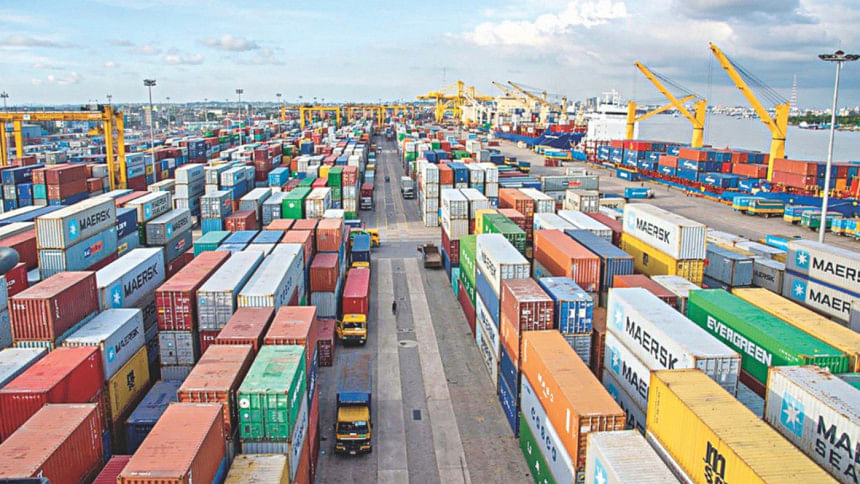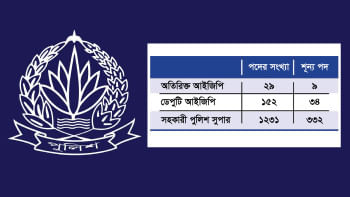Bangladesh loses $8.27bn annually over trade mis-invoicing: GFI report

Bangladesh lost approximately USD 8.27 billion on an average annually between 2009 and 2018 from mis-invoicing of values of import-export goods by traders to evade taxes, and illegally move money across international borders, said Global Financial Integrity (GFI) on Thursday.
The amount showed that the average loss of customs and taxes during the period was 17.3 percent of Bangladesh's trade with all its trading partners during 2009-2018, said the GFI in its latest report, "Trade-Related Illicit Financial Flows in 134 Developing Countries 2009-2018."
The Washington-based organisation did not provide data on trade mis-invoicing on Bangladesh after 2015.
The report comes at the time when illegal money transfer via various channels, including through under and over-invoicing of internationally traded goods, are believed to be rampant in the country for alleged collusion among dishonest customs officials and traders.
The GFI report did not have data on Bangladesh for the year 2014, 2016, 2017, and 2018.
The Daily Star emailed GFI Communications Coordinator Lauren Anikis to know about the reasons behind no updated data, but did not receive a reply until the filing of this report.
Last year, an emailed reply to The Daily Star by Maureen Heyd, communications coordinator of the GFI, said they did not know why reporting to the UN Comtrade for Bangladesh was dropped off in recent years.
"This is unfortunate, as it limits our ability to investigate illicit activity in Bangladeshi trade."
During 2008-2017, the average loss of Bangladesh for trade mis-invoicing was USD 7.53 billion, according to the previous GFI report, which also did not have data on Bangladesh for 2014, 2016, and 2017.
The GFI report estimated USD 1.6 trillion in potential trade mis-invoicing among 134 developing countries. Of the amount, $835 billion were between developing countries and 36 advanced economies, in 2018.
Among South Asian countries, Bangladesh lost the third highest amount to trade mis-invoicing. India lost the highest amount at USD 67.49 billion, followed by Pakistan at $8.5 billion during 2009-2018.
The GFI report had data for India for all the years. In the case of Pakistan, no data was available for the year 2018.
In percentage terms, the average loss for trade misinvoicing was 19.8 per cent of India's total trade, and 20.2 per cent in case of Nepal. For Sri Lanka, it was 19.2 percent and 18.7 percent for Pakistan's total trade during the period.
GFI President and Chief Executive Officer Tom Cardamone said during a time when developing countries are scrambling for every penny to fund vaccines and medicines to fight Covid-19 infections, billions of dollars in duties and taxes are going uncollected.
"It is absolutely shocking," he continued, "how few governments are paying any attention to these massive losses."
The report said trade mis-invoicing is a persistent problem across developing nations, resulting in potentially massive revenue losses and facilitating illicit financial flows across international borders.
It said trade mis-invoicing occurs when importers and exporters deliberately falsify the declared value of goods on invoices submitted to customs authorities.
This allows traders to illegally move money across international borders, evade tax and/or customs duties, launder the proceeds of criminal activity, circumvent currency controls, and hide profits in offshore bank accounts.
GFI said it examined official trade data reported to the United Nations to identify value gaps, or mismatches, in the data regarding what any two countries reported about their trade with one another.
Towfiqul Islam Khan, senior research fellow of Centre for Policy Dialogue (CPD), said the government authorities particularly Bangladesh Financial Intelligence Unit and the National Board of Revenue (NBR) should implement the steps it wanted to take earlier in order to curb money laundering and trade mis-invoicing.
He said BFIU earlier framed an anti-money laundering strategy and planned to take a number of steps.
"We have not seen implementation of the initiatives," he said, adding that the NBR should make public the steps it decided to take earlier to prevent the illegal money transfer through overseas trade channels.

 For all latest news, follow The Daily Star's Google News channel.
For all latest news, follow The Daily Star's Google News channel. 



Comments